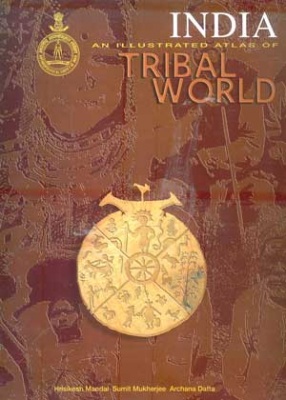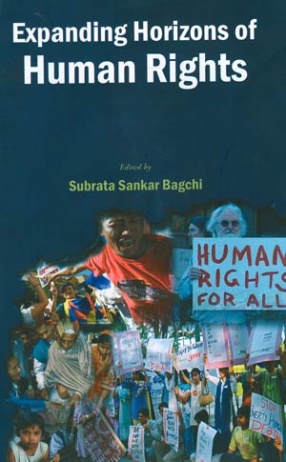Case Studies in Political Sociology
Synopsis
Since 1971 the International Review of Modern Sociology (henceforth IRMS) has served as a prominent and significant publication for researchers and scholars. For this, we must express our deepest gratitude to Dr. M.S. Das whose tireless deeds helped sprout and nourish the publication, and gave it international recognition. Almost thirty-five years now, the publication – which a relatively new makeover – continues to be a magnet for a rich array of sociologically related scholarship and research. Case Studies in Political Sociology is in part a tribute to this tradition. The central idea behind this edited volume is to continue to make accessible and to profile various selected works published in IRMS. Through this process, I hope the contributions published in IRMS can periodically be pulled together around a sub-area of study and serve as a valued resource and reference for students, teachers, and researchers alike. Case Studies inj Political Sociology represents the onset of the above objective. This collection, consisting of seven chapters, is based on articles that appeared in Volume 31 (nos. 1 and 2) of IRMS. As self-contained contributions, the pieces distinctly highlight one underlying characteristic that has also been a notable attribute of IRMS: valuing interdisciplinary inquiry. Indeed, while interdisciplinary (and cross-disciplinary) research (and teaching) increasingly became the buzz and latest ‘trend’ in scholarship during the 1990s, IRMS was already well established in publishing scholarship with such a thrust. And so again in this edited volume of Case Studies in Political Sociology the reader will find within each of the distinct pieces, a strong interdisciplinary flavour. In Chapter One, M.D. Litonjua employs the state-centered theoretical framework to elucidate the forces that ultimately distinguished the People Power Revolution which came to fruition in 1986 in the Philippines as a case of a “political revolution†and not a “social revolution.†In Chapter Two, Harry Humphries and colleagues consider the pursuit of identity reconstruction, especially as expressed through the process of Islamitization and cultural revival among Tatars within the framework of a post-Soviet political order. While framing this process within the context of the resurgence of Islam globally, the authors also affirm the need to consider the influence of Islamitization on ethno-religious revitalization through the interplay of local and regional consideration. Chapter Three presents another case of identity re-affirmation; but in this instance, a study of identity affirmation among 87a cross-section of Malaysian-Indians adhering to the teachings of Sathya Sai within a predominantly Islamized socio-political environment in Malaysia. Stan Weeber and colleagues start out – in Chapter Four – by drawing from Tamotsu Shibutani’s work on the news media to analyze the reporting of the search for Osama bin Laden. In assessing if fear and ambiguity might be instrumental in influencing the extent of coverage regarding bin Laden, the authors suggest that the latter phenomenon may, after all, be shaped more by other considerations such as the “entertainment†and “human interest†relevance of the story within a globalized media culture. Through a grounded analysis of the Zapatista resistance in Mexico, Kara Zugman brings to fore the relevance of ethnicity and cultural politics in the discourse on social change in Chapter Five. Specifically, Zugman illuminates on the appropriation of the indigenous Mayan-Zapatista politics into the urban socio-political context, and in the process, sheds light into the emergence of a previously unavailable political space and outlet of political expression. Janet Burns’ juxtapositioning of two expressions of nationalism through the art of Diego Rivera in Mexico and Lawren Harris in Canada in Chapter Six makes for a fascinating illumination of how, independently, both distinctive artistic traditions were grounded in the nationalistic ambitions of the elites. In presenting this intersection of nationalism and art, Burns situates the Mexican and Canadian case with the distinct colonial contingencies of each society. In the final chapter Chunlong Lu brings into further focus some of the nuances in the influence of the middle class in engendering democratization. Based on a sample of fifty-two cases, the cross-national study employing structural equation modeling affirms the impact of economic development on democratization is contingent on a the emergence of a sizable middle class.
Read more
23.40
21.06
$
26.00 $
Free delivery Wolrdwidе in 10-18 days
Ships in 1-2 days from New Delhi
Membership for 1 Year $35.00
Get it now and save 10%
Get it now and save 10%
BECOME A MEMBER
Books by the same author









Bibliographic information